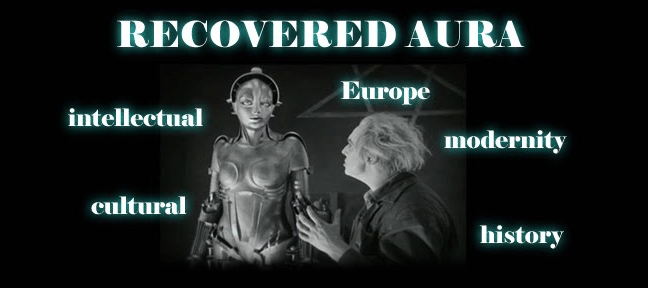One of things that pleases me so much about Prof. Martin's syllabus is that gender is examined as an underlying social construction across multiple weeks. On March 3rd we'll be looking at Zola's novel The Ladies' Paradise. Prof. Martin will be introducing us to the rise of shopping and consumer culture. This is a highly gendered realm and we'll begin to see how buying and displaying material goods gets entangled in issues of femininity and feminine social presentation. On April 14th he'll be introducing us to that powerful modern archetype "the New Woman"-which means many different things to many different people. I'm especially excited to see we'll be watching some of the film Pandora's Box. Click here for an exciting preview!
For the past week I've begun to realize how everything I've been writing about in this blog is almost, without exception from the male point of view- male philosophers, male artists, male composers, male scientists, male poets etc. Well, surprise, surprise... after all, women haven't even had suffrage in the U.S. for a hundred years (we can ring that centenary in in 2020) and in France, well, they won't be able to celebrate a hundred years of women's suffrage until 2044! Shocking- yes? So what do we do as students of history? How do we get to HER VOICE, HER LIFE when all we have are HIS STORIES and HIS IMAGES about HER? This isn't a blog on feminism and women's history per se and yet- why do these things still have to be separate? Why is the male point of view still the default? When I say "this isn't a blog about women's history" am I implicitly saying "this is a blog about MEN'S HISTORY." This is confusing to me.
I believe confusion is GOOD. It shows that the poor little mind- so eager for answers- so hungry for solidity has none of these in the moment. To really feel like you don't know, may be the beginning of the path to knowing.
Getting back to the question of "why is history usually Men's History": the sheer volume of historical texts, artifacts, discourses- which are important to understand the consciousness of the times that we're studying- are 99% MALE both in their origination and in their points-of-view. Women are present, always of course, but they are like the stratum just below the surface of the visible- obviously there, but hidden, silent, waiting for an archaeologist, a mindful excavator.
Keep this in mind when I do my lecture on "Dangerous Sexuality" on March 17th. Women take on some very specific qualities in the male imagination. WOMAN is not just woman... she becomes a whole universe of symbols within the male interpretation of biological-social-cultural reality.
As students of history we must be conscious of the fact that history as a discipline came of age in a time when it was rare for women to be involved in the public discourse on anything! There are always exceptions of course, we have people like Mary Wollstonecraft and John Stuart Mill writing about what seems so obvious to us now- that women's inferiority to men is a cultural idea that has been mistaken and perpetuated as a natural fact and that it must not only be addressed it must be changed.
We have great female authors rising to real positions of acclaim as the novel becomes the penultimate form of 19th C. literature: Mary Shelley, Elizabeth Gaskill, Jane Austin, Charlotte and Emily Bronte, George Sand (took a male name), George Eliot (took a male name) etc. I've noticed that most of the female authors (and poets) that I can bring up in my mind are either English or American. Is this merely because I'm Anglo-American? Or is the feminist tradition strongest in these two English speaking nations?
Is there something about the novel that lends itself to the female voice? Is there something sociological that allows women to find power in this space of story-making and of early mass communication? Of course what women could write novels? Upper and middle class of course. So the class issue becomes a part of the question... as does race and ethnicity.
- The History of Women's Suffrage
- Women's Rights in France
- Women's Suffrage: Global- Wikipedia
- Women in the 19th Century
- Women Writers in the 19th Century
- Capitalism and 19th Century Feminism
- European Feminism: 1700-1950 (book)
- Women Artists in History, a century by century site
- 700 Hundred Important Women Artists from the 9th-19th Century
- Women Writers: 17th-20th Century
- Women Writers, 19th Century France
- Women Philosophers


No comments:
Post a Comment